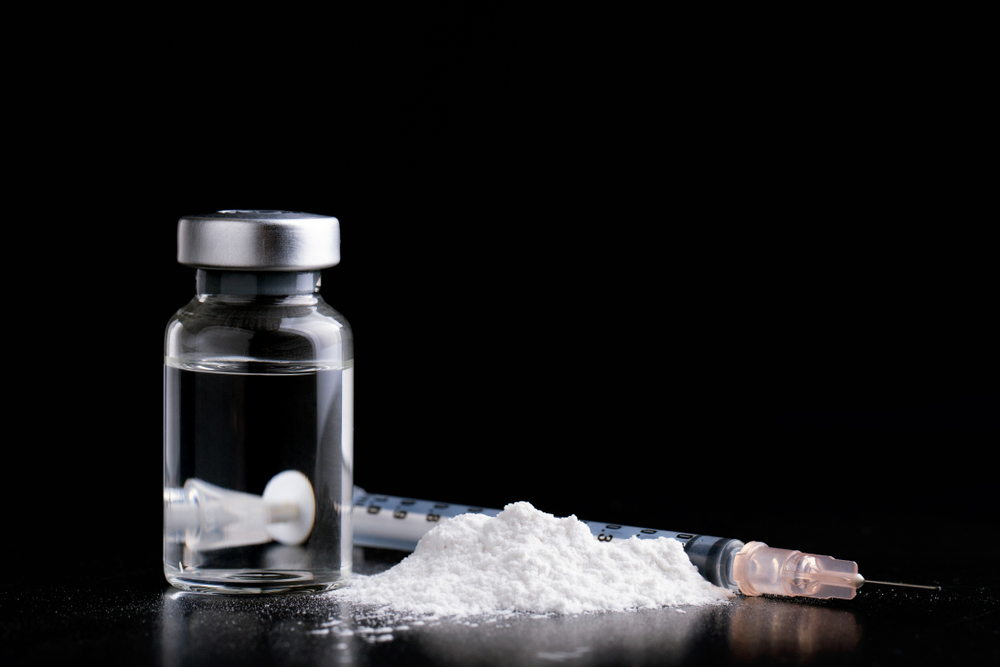Ketamine is a dissociative anesthetic that separates perception from sensations. It was created in 1962 as a human and veterinary anesthetic but is now popular as a recreational hallucinogen. Known as “K,” “ket,” “kit kat,” or “special K,” it comes as a liquid or white powder that is snorted, injected, or ingested orally.
Ketamine abuse is rising, especially among young adults and teens looking to experience an intense high. Nearly 1.2 million Americans tried ketamine for the first time in 2020, showing just how popular this dissociative hallucinogen has become in recent years.
At lower doses, ketamine can cause dreamy, floating sensations and visual hallucinations. Higher doses often lead to a “K-hole,” completely detached from one’s physical body and the outside world. Depending on the dose, the effects usually last 30 minutes to 2 hours.
Signs of a Ketamine Overdose
If someone you know has overdosed on ketamine, getting them medical help immediately is critical. The signs of a ketamine overdose can range from unpleasant to life-threatening. These signs include but are not limited to:
- Diminished pain perception
- Nystagmus (lateral, horizontal or rotary eye movements)
- Confusion
- Slurred speech
- Muscle rigidity
- Profound sedation
- Hallucinations
- Unconsciousness
- Seizures
- Coma
- Respiratory depression (shallow or irregular breathing)
- Psychosis Nausea and vomiting
- Lethargy
- Excessive salivation
- Trismus (lockjaw)
- Death
If someone shows signs of a ketamine overdose, call emergency services right away. Keep a close eye on the person’s breathing and be prepared to perform CPR if it stops. An overdose is a medical emergency – don’t hesitate to call 911 for help.

Why Does a Ketamine Overdose Occur?
A ketamine overdose occurs when too much of the drug builds up in your system, overwhelming your body’s ability to break it down safely. Ketamine is metabolized in the liver, where enzymes convert the drug into harmless byproducts that your body can excrete.
As ketamine continues circulating in the bloodstream, it reaches toxic levels your liver can’t adequately process. This ketamine toxicity means the drug and its harmful metabolites start to accumulate, causing damage to organs and tissues. The kidneys, in particular, have difficulty filtering the excess ketamine and waste from the blood.
With a ketamine overdose, your vital signs, like heart rate, blood pressure, and body temperature, become abnormal and unstable. Your breathing may slow down or even stop, and you can lose consciousness or experience seizures.
What Increases The Risk of a Ketamine Overdose?
Several factors increase the risk of a dangerous ketamine overdose.
Combining Ketamine With Other Substances
Mixing ketamine with alcohol or other drugs is extremely dangerous and can be deadly. These substances interact in harmful ways, enhancing each other’s effects. Even small amounts of ketamine combined with other depressants like alcohol or opioids can slow breathing and heart rate to dangerously low levels.
Taking Too Much Ketamine
Higher doses of ketamine mean higher risks. While the lethal dose varies for each person based on factors like body weight, ketamine tolerance, and overall health, taking more than 600 mg at once puts you in dangerous territory. At these high doses, ketamine’s anesthetic effects become much more powerful, potentially causing loss of consciousness, respiratory failure, and even death.
Long-Term and Frequent Ketamine
Frequent or long-term ketamine use can lead to tolerance, dependence, and addiction. As tolerance builds up, users need higher and higher doses to feel the desired effects. This pattern of escalating use makes overdoses much more likely and causes severe damage to the urinary tract and brain. Long-term ketamine use has been linked to memory loss, psychosis, and other mental health issues.
Ketamine Overdose Treatment
If someone you know has overdosed on ketamine, getting them proper medical treatment right away is critical. The symptoms of a ketamine overdose can be frightening, but with prompt care, the effects are often reversible. Call 911 immediately if a person who has taken ketamine has the signs above.
In the ER, doctors will continue monitoring heart rate, blood pressure, breathing, and other vital functions. Since there is no specific antidote for a ketamine overdose, treatment focuses on managing symptoms and supporting the body’s functions. Options include:
- Administering benzodiazepines (like Valium) to relieve agitation and control psychotic symptoms.
- Using breathing assistance if needed via intubation or ventilation.
- IV fluids to maintain hydration and blood pressure.
- Cooling blankets for hyperthermia.
- Anti-seizure medications if seizures occur.
The hospital staff will observe the person as the ketamine wears off, which can take 1 to 3 hours. They will be discharged once fully alert and stable, often within 24 hours. Follow-up care may include referrals to addiction treatment programs.

Getting Help for Ketamine Addiction
If you or someone you know is struggling with ketamine addiction, help is here. Contact us at MD Home Detox to learn more about our addiction treatment programs. Recovery is a journey; we’re ready to help you take the first step. Call 1 (888) 592-7931 today to speak with one of our specialists.
The journey to sobriety isn’t easy, but by recognizing you need help and exploring your treatment options, you’ve already taken that important first step. There are people and resources to help you through this – don’t hesitate to reach out. A happy, healthy life free of ketamine addiction is possible. You can do this!

